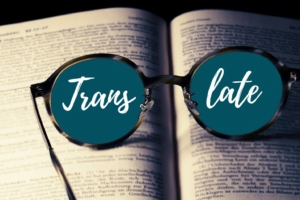In the 21st century, incidents of corporate malfeasance have become commonplace. America witnessed the implosion of the onetime energy wonder Enron, the fall of telecommunications giant WorldCom, and the collapse of mortgage miracle Countrywide, just to name a few.
Not surprisingly, questions were quickly raised about the role business schools played in such scandals, the implication being that B-schools encouraged the blind pursuit of profit maximization and a “winner-take-all” mentality. While such fiery rhetoric is provocative, it’s important to point out that such pursuits run counter to the basic tenets of long-term, sustainable business practices taught in business classes.
While B-schools certainly have a role to play in promoting ethical practices, such a tremendous responsibility can’t fall squarely on the shoulders of B-schools. It is our families and institutions in society that must also demonstrate and reinforce personal and professional ethics.
Even though a host of ethics initiatives, centers, and/or institutes bubbled up across the nation in response to highly publicized cases of corporate corruption, nearly all are situated at the graduate level among MBA students and centered on matters related to corporate governance. The Eller College of Management at the University of Arizona launched its ethics program in 2003, and it was met with interest and enthusiasm for being markedly different.
The Eller ethics program, E-tegrity (Eller Integrity), is aimed at undergraduate business students and is focused on connecting academic integrity in the classroom with future behavior in the workplace. As research suggests, student behaviors demonstrated in the classroom can carry over into careers. Put differently, students involved in cheating are more likely and at-risk to engage in unethical practices such as insider trading.
From the onset, E-tegrity was supported by Eller College Dean Paul Portney. Leadership from the top is always imperative to begin and maintain any program. Equally important is the buy-in from faculty and students. Faculty affirmed that the college had a responsibility to promote ethics and were invigorated with the prospect of establishing a culture of strong ethics. Students also proved deeply interested. With this broad base of support, E-tegrity began.
Prior to the start of the fall 2003 semester, faculty were asked to take three simple, but important measures in their classes: (1) include a college-adopted student oath statement on syllabi that addressed both academic dishonesty and academic misconduct, (2) formally handle all academic integrity cases, and (3) use the anti-plagiarism software (Turnitin.com) purchased by the college.
The code of conduct statements on syllabi would help ensure that faculty sent a consistent message to students. Formally handling cases would encourage that due process would be followed and cases would be officially reported. The anti-plagiarism software would help deter and detect plagiarism, which accounted for 70 percent of university academic integrity violations in 2002-2003. By adopting these measures, the faculty would take on the primary responsibility for the enforcement component of the program.
Because E-tegrity called for a cultural change in the college that centered on student involvement, in the same fall 2003 semester, students were invited to apply for membership to a new student organization known as the Eller Board of Honor and Integrity (EBHI). EBHI would ultimately be charged with the educational component of the program, working with students on a variety of innovative programs to help raise awareness. Members of EBHI would: (1) Develop a student oath that would be administered to students upon entry to the college; (2) offer presentations to students on the importance of ethics, whereby they not only promoted, but were expected to exemplify personal integrity and ethics among their peers; and (3) assist with the organization and delivery of a series of new and innovative programs that have come to define E-tegrity on a national scale.
Ultimately, the programs of E-tegrity are aimed at three levels: K-12, collegiate and executive. At the K-12 level, there is the High School Ethics Forum. EBHI members facilitate discussions among the city’s top high school students on matters related to personal and professional ethics. At the university level, there is the Eller Ethics Case Competition, in which top B-schools from around the country send their very best students to compete in a three-day event that challenges the ethical reasoning of students. At the executive level, there is the partnership with the Tucson Chapter of the Better Business Bureau (BBB) where students from EBHI comprise a single vote in the BBB’s Annual Business Ethics Awards process. In the near future, EBHI members will also serve as teaching assistants in the college’s first ethics course. In this capacity, EBHI members will assist with the course objective of promoting ethical decision-making.
Over the past five years, E-tegrity has gained traction and matured as an ethics program. By connecting academic integrity in the classroom with future behavior in the workplace, the college motivates students to examine their personal values and consider all stakeholders in their decision-making.E-tegrity has been the recipient of various awards for excellence, and innovation has provided meaningful guidance to B-schools around the country looking to address and support ethical behavior on the part of undergraduate students and future business leaders. The real payoff will come in several years, when we begin to graduate students whose entire college career will have taken place in an atmosphere of high standards that are clearly articulated, widely honored, and vigorously enforced.
Paul Melendez is the founder and director of the ethics program at the Eller College of Management at the University of Arizona. For more information on E-tegrity, visitugrad.eller.arizona.edu/etegrity




